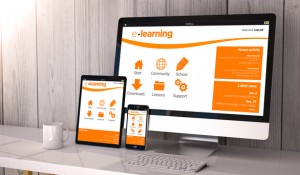Intelligent Workshops
Our workplaces today have had an eruption in technology. How we work and how we deliver our products and services has shifted. We need to maximize the ability of our employees in order to create efficiencies. The workshops listed below help to break down barriers to productivity.
Give us a call at 301-670-0051 and let us help you achieve faster results with your team.
| Word | Excel |
| Access | PowerPoint |
| Outlook | InfoPath |
| OneNote | Project |
| Publisher | WordPerfect |
| Crystal Reports | Adobe Professional |
| SharePoint | SharePoint Designer |
| Office 365/One Drive | Skype for Business |
| Visio |
SharePoint: Empowering Teamwork
 Businesses and organizations must be able to work intelligently. We have to be able to communicate rapidly, change directions when needed and manage projects and staff simultaneously. Work requires agility. It’s a tall order. To be productive and efficient, we need to invest in solutions that are tested. The applications we use must be reliable and still provide flexibility for the particular work we do.
Businesses and organizations must be able to work intelligently. We have to be able to communicate rapidly, change directions when needed and manage projects and staff simultaneously. Work requires agility. It’s a tall order. To be productive and efficient, we need to invest in solutions that are tested. The applications we use must be reliable and still provide flexibility for the particular work we do.
We spend money and time investing on our infrastructure. Our expectations are that these investments will improve performance and reliability. And we expect these systems to expand as we do – providing future needs as we grow in different ways.
Still, our investment in infrastructure depends largely on our workforce and our adoption strategies. Given the right application, and the training needed to utilize its capabilities, organizations have the power to collaborate, manage projects, and work more intelligently than ever before.
SharePoint, the web application designed by Microsoft, is probably the most highly configurable application used to reinforce the work processes throughout organizations. Here’s how SharePoint can help your organization.
Content management. Nearly everything that you can do with documents and content is easier with SharePoint. You can store files and then retrieve the information. You can search that information for certain content. You can manage these files intelligently and even track who’s accessing them. The application is designed specifically for record keeping purposes, legal issues, compliance and work processes.
Collaboration. SharePoint allows people on the same team to share documents. Process management is centralized with every member of the team sharing the same knowledge. Departments are more productive with easy file sharing.
Project Management. Projects are more easily managed. Communication within the team is easier and less cluttered when everyone can have access to documents and leave comments as needed – all within the same platform. Schedules are less likely to slip with reminders in place and hand-offs that are communicated more efficiently.
Intelligent Data. All companies and organizations have data. The problem is finding the data when you need it. How do you search through emails effectively? How do you find the latest version and feel confident that you can make changes and they will be seen and absorbed by all? SharePoint allows centralized access to enterprise information and applications.
The power of SharePoint is empowering teamwork. Every member can find, share and communicate content from any place, to any device.
You have the power. Leah M. Joppy & Associates has training capabilities that can help your organization build effective communication skills that ultimately lead to better teams and better productivity. Check out our new offerings on the following computer training. We have training in these applications at all levels, and in any version! We’re standing by. Give us a call today at 301-670-0051 or send us an email at leadership@lmja.com.
.
Connecting With People
 In this fast paced world of email and text messaging, we somehow leave out the “connecting” part of our communications. And yet, the connecting part is very important to our own success. How we relate to others, and communicate our desires, makes a huge difference on how the message is received. Have you ever noticed that HOW we are asked to do something, either makes us excited to do it, or makes us roll our eyes and dread the project? It’s all about understanding how human behavior works. We can elevate the performance of those around us if we CONNECT.
In this fast paced world of email and text messaging, we somehow leave out the “connecting” part of our communications. And yet, the connecting part is very important to our own success. How we relate to others, and communicate our desires, makes a huge difference on how the message is received. Have you ever noticed that HOW we are asked to do something, either makes us excited to do it, or makes us roll our eyes and dread the project? It’s all about understanding how human behavior works. We can elevate the performance of those around us if we CONNECT.
In your job, and in your future. Recently I read an article about being a successful entrepreneur. The author mentioned that one of the keys to success revolves around the network of the business owner. Those owners who had a more varied network, with closer ties, were more successful. It wasn’t the NUMBER of contacts that determined the success of the owner, but rather the variety of contacts and the depth of the relationships. Some of the most successful entrepreneurs had close contacts in many different areas – people with whom they could discuss problems, or bounce around some ideas. The sincere advice that was given from this network helped the business owner find answers to various problems.
Not a business owner. Whether you work for the government or have a job in corporate America the concept of keeping close ties with a varied list of contacts is not a bad idea. Even retiring successfully and happily may be influenced by your circle of contacts.
Are you listening? When we truly connect with someone, even if it’s someone we’ve just met, the person we’re talking to feels involved. The connection is subtle. Our body language gives us away. Sometimes I see it at networking events. I’m talking to someone, but I see him or her looking casually around the room. Obviously, we’re just NOT connecting. When we’re not truly paying attention, the person we are talking to reads our body language. And not paying attention is a real hit to the person’s confidence.
Telling stories. I have a friend who always interrupts my conversation with a story about what has happened to them. Admittedly, the stories she tells are always on topic to the discussion we were having, but it’s her story. So my conversation or my discussion gets turned around and is quickly forgotten. The focus is now on her!
Those little words. I notice this mostly when I’m on the phone with someone, but it can happen in person too. The person I’m talking to may use words like, “Uh-huh,” “Really,” “gosh,” or “interesting” – all words that signal to me that they are not really involved in my conversation. Something is distracting them. I’m not connecting.
We all bring value. Can we just agree to that statement? Instead of trying to impress everyone with our knowledge and expertise, it’s so refreshing when someone openly admits that they learned something new for the first time! Such a response makes the person talking feel valued.
Talk about the familiar. In some situations, you may feel out of your element. You walk in a room and don’t recognize anyone, or you see that you are outnumbered – you’re a women and the room is almost entirely men (or vice versa). The situation can be nerve wracking. So rather than try to come up with something clever, just be yourself. Talk about something that interests you – a recent movie, a team that you are following, or an upcoming vacation. People are just trying to connect with you, and even if you never mention your expertise, you’re connecting with them on a more personal level – which is actually better!
Does your organization lack connectivity? Better communication leads to less conflict, decreased ‘silos’, a sense of trust , better collaboration and more fulfilling work. Let us help elevate the performance of your team. Give Leah M. Joppy & Associates a call at 301-670-0051 or email leah@lmja.com and let’s discuss solutions that work!
Success or Significance?
 Working hard from day to day, our lives just unfold. Layer after layer, page after page, we strive toward success and financial independence. And we’re certainly not unhappy. Or, at least if someone asks us about our job, we’re probably pretty optimistic. And then one day it hits us – we’re just not as passionate about what we are doing as we expected to be. Is this all there is? Is this what I can expect for the next 5, 10, 15 years?
Working hard from day to day, our lives just unfold. Layer after layer, page after page, we strive toward success and financial independence. And we’re certainly not unhappy. Or, at least if someone asks us about our job, we’re probably pretty optimistic. And then one day it hits us – we’re just not as passionate about what we are doing as we expected to be. Is this all there is? Is this what I can expect for the next 5, 10, 15 years?
Somewhere during our years of productivity, we will ask ourselves this question. It’s a scary thought. Have I been alluding myself all these years? Or have I just veered off track? Each of us is different. But before you jump ship and take a drastic turn in your career, consider your options.
Our resumes are full of our skills and virtues. They help reinforce our self-esteem and they provide concrete measurements of success. But what if our success was measured by the value we bring to others? When we focus on significance rather than success our passion reignites. Our jobs become more meaningful as we search for ways to help others. Focusing on significance doesn’t come at the expense of other areas of our life. Instead, it’s a challenge to round out our lives and make them fuller.
What’s significant for you, may even change from time to time. Depending on your position and your responsibilities, we can add significance to the lives of others and have even greater fulfillment in what we are doing.
So how do we do that? Some say that a good way to start is to think about what you want people to say at your funeral. (I know, nice thought). But it’s true. Few of us want the people closest to us to say things about our income level or mention the profit and loss statements. Instead, we would like to think that we affected people’s lives.
Making the change from success to significance starts with goals. Experts tell us that our brain is naturally a goal seeking organism – we want to achieve our goals. So start with how you want to affect the lives of others and list the goals you want to achieve in order to make a difference. Some of these may be short term goals and others will be longer. The short term goals will actually help inspire you and keep you directed in order to reach your long term goals.
Need help putting these goals together? Read our article below on Tips for Becoming Significant. And if you’d like to engage your organization in talks on Professional and/or Personal Development, Leah M. Joppy & Associates can help. Give us a call at (301) 670-0051 and let’s discuss your needs.
Tips for Becoming Significant
 Moving from a success oriented career to one focused on significance starts with setting goals. Here are some ideas on how you can get started.
Moving from a success oriented career to one focused on significance starts with setting goals. Here are some ideas on how you can get started.
- Create a list of goals that you would like to achieve. For each goal, consider the value of the goal to others.
- There are no boundaries to this list. For example, you may still create a financial goal, as long as the stated goal brings value to others. “I will make a contribution of $5,000 to my favorite charity by the end of the year.”
- There are certain key words that might come in handy as you create your goals. Some ideas: Giving, Mentoring, Showing, Leading, Providing, Helping, etc.
- Write the goals down some place where you can view them every day. For some, that might mean writing them on 3”x5” index cards that you can read through daily. Or you could create a vision board, where each goal is represented by a picture. If you like social media, perhaps you could create several Pinterest boards illustrating your goals. Not only will you have fun with these tasks, but the goals will become more real when you’ve spent time writing them down.
- Check off the goals as you achieve them. Celebrate the fact that you have accomplished something!
What’s the end game here? To find significance in your life. But don’t wait until it’s too late. Starting now gives you time to enjoy even more wonders in your life. If you’re interested in engaging your entire staff or department, consider a one-day workshop on Professional and/or Personal Development. We’d love to discuss the possibilities with you. Give us a call at (301) 670-0051 or send us an email at leadership@lmja.com.
Decision-Making Skills of Leaders
 The decision-making skills of leaders is often puzzling. And lately, more of these leaders find themselves in the news – and not for good reasons. Perhaps you’ve heard about the CEO who raised a drug price 4,000 percent – now he’s under arrest. Or the Virginia governor who is now pleading his case with the Supreme Court. Obviously, being a leader doesn’t automatically guarantee good decision making.
The decision-making skills of leaders is often puzzling. And lately, more of these leaders find themselves in the news – and not for good reasons. Perhaps you’ve heard about the CEO who raised a drug price 4,000 percent – now he’s under arrest. Or the Virginia governor who is now pleading his case with the Supreme Court. Obviously, being a leader doesn’t automatically guarantee good decision making.
So how do leaders learn to make better decisions? In this article published by Fast Company, the author points out that good decision making is critical during all stages of your career. Most experts will tell you that good decisions are the result of three factors – knowledge, a gut feeling and careful consideration. Some people seem to have a knack for making good decisions. In this article, Fast Company interviewed some well-known CEOs to find out what their decision-making process entails.
Larry Page and Sergey Brin, Founders of Google. Setting a realistic timeframe to make major decisions is important for this company. Decisions aren’t stalled and business moves forward.
Ursula Burns, CEO of Xerox. The first African-American woman to lead a company the size of Xerox takes into account the customer and innovation in her decision-making process. She asks, “what is the customer’s pain, and how can we use technology to solve the problem?”
Mark Parker, CEO of Nike. The research group at Nike is always looking at hundreds of new ideas. To make the right decision, Mark asks lots of questions so is team has to think thing through.
Dao Nguyen, Publisher of BuzzFeed. The company reaches 79 million people each month. To make decisions, Nguyen says she uses a combination of intuition, creativity and data – each of which are equally important.
Mark Zuckerberg, Founder of Facebook. Zuckerberg seems to move incrementally. Long term strategy is discussed and then broken up into smaller scale projects. His team credits his inquisitiveness, persistence, devotion and ability to deploy resources.
Malala Yousafzai, Founder of the Malala Fund. Yousafzai understands that she can’t know everything, so she asks questions. She has become an adept listener.
Most jobs come down to two factors: making decisions and executing on decisions. Your ability to make good decisions is key to your success. And sound decision making is a skill that can and should be developed, just like any other skill. In fact, your ability to succeed is dependent on the development of your decision-making skills.
Leah M. Joppy & Associates can help. We have multiple workshops that focus on building decision-making skills for leaders, teams and all employees.
5 Tips for Improving Your Decision-Making Skills
- Question Your Data. It’s OK to get data from another department or another colleague. But question what you are reading. Make sure you understand what the data is conveying. Then look at industry standards and research reports on the same information.
- Don’t Involve Your Emotions. When our emotions or egos get involved, we tend to make decisions for all the wrong reasons. Instead, put them aside. Focus on the facts and put the business need in the forefront.
- Don’t Delay your Decision. When a decision is big, we sometimes tend to delay our decision because it’s more difficult. Instead, put a block of time aside to do your research. Then consider the pros and cons of your decision.
- Understand The Consequences. As you come to your decision, consider the risks that can result. If the worst case scenario happens, what will be the outcome? If you know the possible outcomes, you may be able to mitigate the result. Thinking of them ahead of time will help you figure out possible solutions.
And what happens if the decision you make turns out to be wrong? First, don’t beat yourself up. Instead, review the decision-making process you employed and see if you can identify something that you missed. We’re not perfect, but if we can learn from our mistakes we can be wiser.
Career Growth – Who’s in Charge?
 Think about when you took the job you have now. Did you have a vision of where this job would take you? Has the job lived up to your expectations? Whether you’re close to being in the position you envisioned, or not, you can still get there. Your vision can be realized if you have the commitment to learn. The more you know, the more you are respected. The more you expand your boundaries, the more valuable you are to those around you. You can even widen your career opportunities.
Think about when you took the job you have now. Did you have a vision of where this job would take you? Has the job lived up to your expectations? Whether you’re close to being in the position you envisioned, or not, you can still get there. Your vision can be realized if you have the commitment to learn. The more you know, the more you are respected. The more you expand your boundaries, the more valuable you are to those around you. You can even widen your career opportunities.
Think back over the last 5-10 years and realize how your job has changed. It’s amazing, isn’t it? The skills you’ve acquired, the technology you’ve come to appreciate, the resources available to you – all of these factors are good reminders of just how important continual learning is. Change, as they say, is constant. If you feel stuck in your present position or if your career is not expanding as rapidly as you would like, you have to find ways to get additional learning.
How do you find ways to learn when you’re already feeling overwhelmed? First off, you have technology on your side. And secondly, realize that learning can be done quickly – you don’t need that big block of time anymore. Lastly, use all available resources. Here are some fairly painless ways to learn on your own time.
- Go online. There are courses you can sign up for. Research you can have access to. Blog articles abound – follow your favorite blogger. And then there’s YouTube – what CAN’T you learn through this site!
- Schedule something special for your break! Take the time to view a video or listen to a podcast. Devote a few hours every week and pick up some new knowledge!
- Schedule a brown bag session. Sharing courses or topics benefits all and saves money.
- Get wiser about your commute. Whether you’re in a carpool, on the metro or driving yourself, there’s a way to get informed. Turn on a podcast or pop in a CD from your local library. Download it to your iphone for the metro or carpool. You can even add video – as long as you’re not driving!
- Find an hour on the weekend Plan to watch a video, do some online research or browse the library. Chances are, once you get started the time will fly by.
- Take a walk. With today’s technology, get your exercise and expand your career at the same time by downloading a bit of professional training to your mobile phone.
- Learn as you watch your kids practice. Are you a soccer mom? Do you drive your kids to the basketball game? Instead of being bored watching practice, consider plugging into an online learning opportunity.
- Exercise your rights to learn at the gym! Listening to a CD, podcast or video will not only increase your knowledge, but make the exercise routine less boring.
Make it a Plan. The idea here is that one year from now, your knowledge, skills and experience should be greater than it is today. Write out your plan to get there and review it monthly.
What Does Career Growth Mean to You?
 Career growth is personal. If you have a clear definition of what career growth means in your own mind, you will be able to take advantage of growth opportunities. More than likely, there are opportunities both within your present organization as well as opportunities that are provided by outside resources. Both are valuable.
Career growth is personal. If you have a clear definition of what career growth means in your own mind, you will be able to take advantage of growth opportunities. More than likely, there are opportunities both within your present organization as well as opportunities that are provided by outside resources. Both are valuable.
Define career growth for yourself. That could mean the ability to learn new skills and use them in your job. Career growth for some might be to work for an industry leader. For others, growth is the opportunity to take on new challenges and responsibilities. What is your idea of career growth? Remember that your career growth, while mostly a map of your career goals, can also include some personal goals. Once you’ve defined your career growth plan, write it down and start working toward your end result.
LMJA Can Help
LMJA can help with Individual Development Plans (IDP). An IDP is critical to your future. It is fast becoming mandatory in Federal Government for all employees – whether senior level or entry level. All employees are being highly encouraged to take responsibility for their own career growth. Give us a call at (301) 670-0051 and let us discuss our step-by-step action plan to achievement.
Happier Work Life
 Going into the New Year we hear a lot of talk about getting in shape, eating healthily and making sure we exercise daily. Certainly that’s all well and good – especially after our indulgences of the holiday season. But maybe even more important is our mental well-being.
Going into the New Year we hear a lot of talk about getting in shape, eating healthily and making sure we exercise daily. Certainly that’s all well and good – especially after our indulgences of the holiday season. But maybe even more important is our mental well-being.
We are often defined by our work. Our work gives us structure and purpose. But what happens when you are sick of your job? Should you quit? While there comes a time when a job change is what we need, very often the fact that we are unhappy at work is the result of our own neglect. Perhaps it’s the routine of going to work every day. Or maybe it has to do with your long standing devotion to the work you do. It’s hard sometimes to shake the feeling of inadequate fulfillment at work.
What can we do? While there are all kinds of ways that you can make your job more interesting, or your attitude more positive (see our Tips for Being Happier at Work), our quest this month is to make that happier attitude a constant in your life.
Two things that are discussed frequently when it comes to work life satisfaction, include:
- Focusing on learning opportunities, and
- Reaching an intense state of focus.
According to a recent article by Fast Company, to achieve real happiness at work, we should focus on what we are learning in our job and building on that set of skills. There are a lot of ways we can go about building our knowledge base.
Research. Fortunately, we live in the internet era. You can find information online about any subject. Stick to known and reputable sites and you’ll likely find lots of information on the skill you are trying to build. And don’t forget to check out podcasts and videos. It’s amazing how much and how fast we can learn about a particular skill by listening to someone, rather than reading and re-reading articles and white papers.
Colleagues. Chances are, there’s someone in your business or association that has the skills you are interested in. Seek out mentors, colleagues and friends. Ask them to give you feedback and point you in the right direction. Having a few conversations can really help you hone in on the areas of development – and in the process, all that talk makes you more excited to learn.
Resources. There are lots of outside resources where you can take a seminar or workshop on a particular subject. These resources aggregate a lot on information, helping you make greater strides in a shorter amount of time.
The second tip for creating a happier work environment comes from a study done by the University of Chicago. The study examined peak performance and found that when individuals were able to reach an intense state of focus (often called “flow”) that they became completely engrossed in a project and free of external distractions.
The benefits of focus. This intense state of focus leads to a kind of euphoria – a mastery of the subject, if you will. The result is happiness, productivity and a new sense of learning. So how do we reach this intense state of focus?
Organization. The key to focus seems to be organizing your tasks and priorities with clear goals in mind that are reachable. As you meet and exceed these goals, focus increases, along with our confidence level. And as our confidence increases, so does our enjoyment of our work. We’ll even put more stress on ourselves to learn more, so desirable is this state.
Continuous enjoyment. There is evidence that we can continue this state of euphoria and focus by setting clear goals every day. Writing down our tasks, setting priorities and accomplishing these tasks are important to our enjoyment and focus.
If you or your organization needs help in the New Year with Individual Development Plans, give us a call. An IDP is critical and fast becoming mandatory in Federal Government for all employees. An IDP is a road map of mostly career goals (some personal goals) and contains a step-by step-action plan to achievement. Give LMJA a call at 301-670-0051, or email me at Leadership@lmja.com. Let’s put some time aside to discuss your needs.

